Adam Austin
Cybersecurity Lead, Haight Bey & Associates
September 2017
Since my mid-teens I’ve been keeping a journal. It’s up to three volumes now, filled with my random thoughts and crappy poetry, and snippets and quotes from my favorite reading. Call it a thought scrap-book. It’s fun to occasionally leaf through the older volumes to see how my perspective and philosophy have changed over the years, and how they haven’t. Looking through the first volume, I came across this snippet:
…if he takes whatever dull job he’s stuck with—and they are all, sooner or later, dull—and, just to keep himself amused, starts to look for options of Quality, and secretly pursues these options, just for their own sake, thus making an art out of what he is doing, he’s likely to discover that he becomes a much more interesting person and much less of an object to the people around him because his Quality decisions change him too. And not only the job and him, but others too because the Quality tends to fan out like waves. The Quality job he didn’t think anyone was going to see is seen, and the person who sees it feels a little better because of it, and is likely to pass that feeling on to others, and in that way the Quality tends to keep on going.
Ah, good old Zen and the Art of Motorcycle Maintenance. It’s probably been 20 years since I first read that book. Sad to say its author Robert Pirsig passed away this year. That fact and the general funk I’ve been in from paying too much attention to the media inspired me to read the book again.
The snippet above comes toward the end of the book, during the climax. If you’ve never read it, I’ll try to describe the gist: the philosopher narrator uses a cross-country motorcycle trip with his son to wrestle with internal demons animated by his past pursuit of the development of a rigorous philosophical construct of “Quality”. The demons are a manifestation of an insanity caused by trying to explain “Quality” to others when not enough other “quality” words exist to define the word “Quality”. It’s like obsessing over trying to define the color “green”, without resorting to scientific explanations of electrons, photons, frequency, rods/cones, optic nerves, etc. The narrator is able to manage these demons, in part, via useful exposition to laymen on how to achieve (as opposed to define) Quality in all aspects of life, set in the context of maintenance and fixes on the motorcycle necessitated by the trip.
The section in the book that comes immediately after the snippet I recorded in my journal continues:
My personal feeling is that this is how any further improvement of the world will be done: by individuals making Quality decisions and that’s all. God, I don’t want to have any more enthusiasm for big programs full of social planning for big masses of people that leave individual Quality out. These can be left alone for a while. There’s a place for them but they’ve got to be built on a foundation of Quality within the individuals involved. We’ve had that individual Quality in the past, exploited it as a natural resource without knowing it, and now it’s just about depleted. Everyone’s just about out of gumption. And I think it’s about time to return to the rebuilding of this American resource—individual worth. There are political reactionaries who’ve been saying something close to this for years. I’m not one of them, but to the extent they’re talking about real individual worth and not just an excuse for giving more money to the rich, they’re right. We do need a return to individual integrity, self-reliance and old-fashioned gumption. We really do.
Wow. This was published in 1974, during a very similar era of stagnation of American idealism and exceptionalism, and with another highly controversial figure in the White House. My recent re-read came at precisely the right moment, as I had been looking to draft a better corporate quality statement to help remedy my general malaise, and Quality is what this book is about.
Mr. Pirsig advocates the notion that Quality arises when the individual abolishes the distinction between him or herself and the work they are doing. Quality cannot be injected into work after the fact, it has to be created in the moment. Why, then, do our corporate Quality Statements treat quality as an objective, something separate from the corporation and its employees? Why is the individual doing the work so often neglected from the quality statement?
Typical corporate Quality Statements include some variant of the following platitude: “We strive to always meet and often exceed customer expectations…blah blah”. Great. But how do you do this? What good is assertion without instructions for exertion? How does such a statement get translated into Quality work? And who, exactly, is the audience for this statement? I see three possible audiences for the Quality Statement:
- The Quality Auditor—who cares? This person doesn’t do the work, and if you are facilitating audits correctly, the auditor is an outsider who really doesn’t understand what the work is in the first place, let alone understand your corporate culture. All he or she can do is render judgement on your processes that prevent poor Quality work from reaching the Customer.
- The Customer—too late.
- Existing customers already know you produce Quality work, otherwise they wouldn’t be your customers.
- Future customers come to you through word of mouth of existing customers, so they already suspect you produce Quality work.
- The Employee—there we go. Your employees (including yourself) are the ones who execute Quality work. New employees need to learn, and veteran employees need to be reminded, that Quality comes from the individual’s interaction with the work, and that there is no separation between the two. Quality is not something that can be bolted-on or baked-in after the fact. You are your actions. Quality isn’t something you do, it is something you are, something you choose to be. And you choose to be by knowing that your purpose in existence is to do the right thing, by figuring out for yourself what the right things is, and by taking ownership of your actions.
Therefore, here’s a proposition for a better, Zen-and-the-Art-of-Motorcycle-Maintenance-inspired, individual-focused Quality Statement:
Value your individual worth, self-reliance, and integrity, and as a result your work will automatically manifest Quality.
Take it or leave it. I’m running with it. Safe travels Mr. Pirsig.



